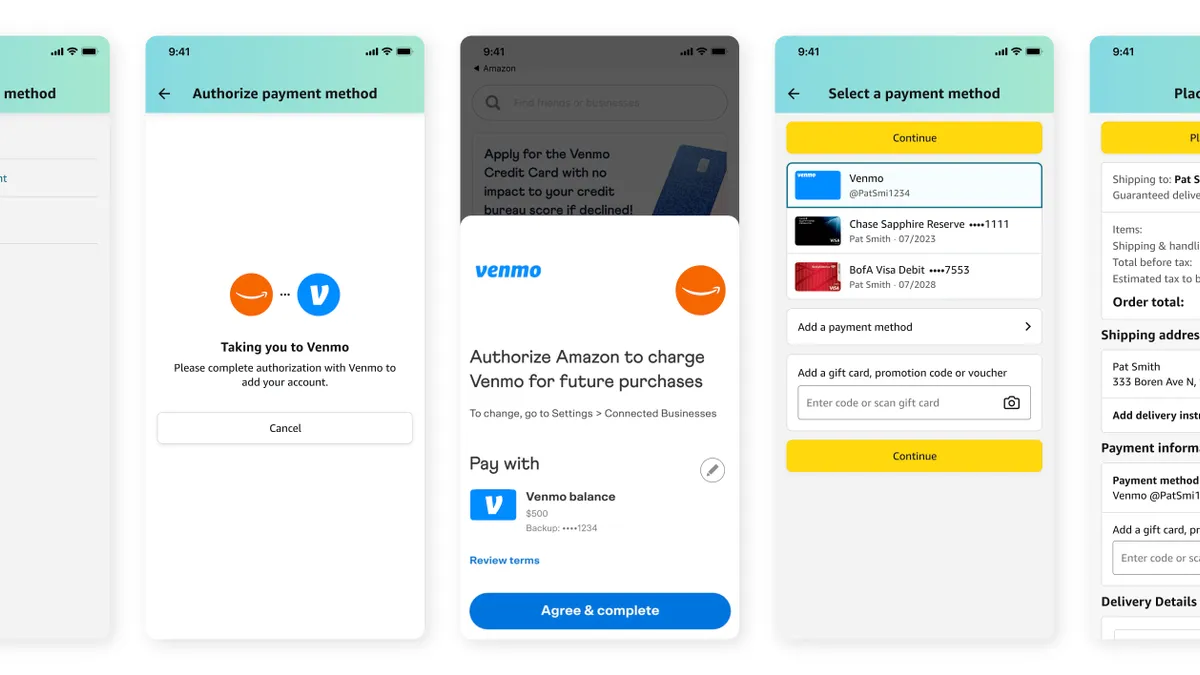Dive Brief:
- Delivering on its promise from last November, Amazon announced on Tuesday that it will start accepting Venmo — a peer-to-peer digital wallet app — as a payment method for U.S. customers, according to a company press release.
- Available through Amazon’s website and mobile app, the payment choice is starting to roll out to select customers and will be available to all U.S. shoppers by Black Friday, per the release.
- Customers will be able to select Venmo as an option through their Amazon account, allowing them to use it during checkout and make it their default payment method.
Dive Insight:
Amazon’s new payment method — which was first teased in an announcement from Venmo owner PayPal last year — adds another way to shop for holiday gifts this season.
“We want to offer customers payment options that are convenient, easy to use, and secure — and there’s no better time for that than the busy holiday season. Whether it’s paying with cash, buying now and paying later, or now paying via Venmo, our goal is to meet the needs and preferences of every Amazon customer,” Max Bardon, vice president of Amazon Worldwide Payments, said in a statement. “We’re excited to continue to offer customers even more options when it comes to how and when they want to pay for their order.”
The retailer noted in its announcement that the transactions with Venmo are “protected by the back-end technology Amazon has built, as well as Amazon’s A-to-z Guarantee. In addition, Venmo Purchase Protection also applies to eligible purchases.”
In June, Venmo's parent company PayPal was hit with a lawsuit alleging Venmo posed “huge, undisclosed security risks” to users and does not reimburse those who are victims of fraud. At the time of the allegations, PayPal said the company was "reviewing the complaint." PayPal did not immediately respond with additional comment.
Ahead of Amazon’s third-quarter earnings report on Thursday, several analysts lowered sales and profit targets for the company. Heightened expenses and inflationary pressures were cited as reasoning, along with less-than-ideal results from its Prime Day sales events.












